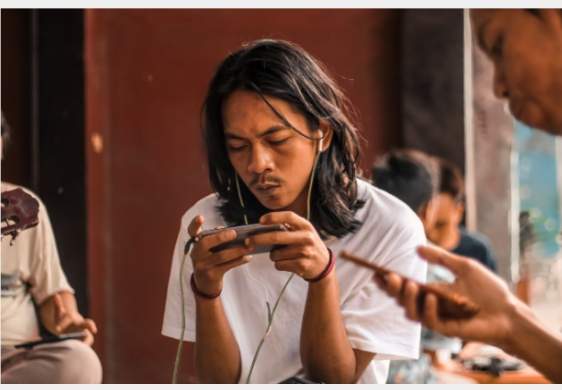Table of Contents
In the rapidly evolving digital landscape, social gaming stands out as one of the most dynamic and ubiquitous forms of leisure and social interaction. Whether it’s World of Warcraft bringing together millions of players worldwide or a friendly match of Words with Friends mental health connecting long-distance pals, social gaming has transformed the way we build relationships and engage with others.
But with this new frontier in human interaction come critical questions about how these experiences shape our mental well-being. In this deep-dive exploration, we will unravel the intricate tapestry of social gaming, examining its power to uplift and entertain, as well as its potential to ensnare and harm.
The Thriving Social Nexus of Gaming Communities
Social gaming, at its essence, is a bridge that connects people across geographical barriers, age gaps, and cultural differences. It creates a shared environment that fosters camaraderie, strategy building, and shared achievement. What’s more, the social connections forged in the pixels and bytes of gaming worlds can be as robust and meaningful as those developed in the physical realm. Players often report a sense of belonging, with communities that support them through the highs and lows of their gaming, and by extension, their personal lives.
A Shared Universe: The Power of Online Friendship
Within the gaming universe, players find more than just allies for completing quests. They find friends, confidants, and sometimes, even life partners. The shared experience of overcoming challenges in a game can cultivate bonds rooted in mutual respect and trust. Such relationships are especially valuable for individuals who might otherwise struggle to make social connections, such as those with social anxiety or individuals in remote areas.
Building Communities, One Pixel at a Time
From Minecraft servers to Reddit forums, gaming doesn’t just bring individuals together—it creates entire cultures and communities. These spaces encourage collaboration, mentoring, and learning, elevating the collective experience beyond mere gameplay. Gaming communities often become vibrant social ecosystems where personal growth and support are central pillars.
Power-Ups for the Minds: The Cognitive and Emotional Rewards of Gaming
Social gaming isn’t just about fun and friendship; it’s a realm where mental health can flourish. The interactive nature of games provides a litany of cognitive benefits that stimulate the mind and fuel personal development. Similarly, the emotional rewards of navigating virtual challenges can significantly impact players’ moods and stress levels.
Leveling Up in Real Life: The Cognitive Perks
Strategic thinking, problem-solving, and multitasking are not just game achievements—they are skills honed through rigorous gameplay. Games like classic blackjack offer a mental workout that can sharpen decision-making and risk assessment. Additionally, the complex and evolving narratives of role-playing games can enhance empathy and emotional intelligence by allowing players to experience the world through different perspectives.
A Pause from Reality: Stress Relief and Enhanced Mood
Escapism is a crucial function of social gaming, providing a reprieve from life’s stresses. The satisfaction of completing a challenging quest or a casual round of Tetris can release a rush of endorphins, positively impacting mood and mental outlook. Furthermore, cooperative play can reduce the sense of isolation and depression, creating an axis of happiness around shared experiences.
The Dark Side of the Screen: Navigating the Risks of Online Interaction
Just as social gaming can be a salve for the soul, it also has the potential to inflict pain, both emotional and psychological. For every heartening tale of online friendships and support, there is a cautionary one about the perils of unchecked interaction.
More than a Game: The Lure of Addiction
Compulsive gaming can lead to addiction, wherein the pursuit of in-game success or social validation becomes all-consuming, to the detriment of real-world relationships and responsibilities. Risk increases when there are competing behavioral health issues, such as anxiety or depression, which gaming can exacerbate or be used to escape from.
Trolls and Tribulations: Cyberbullying in Virtual Realms
The anonymity of online environments can sometimes bring out the worst in individuals. Cases of cyberbullying and toxic behavior are not uncommon, and the impact on the victim’s mental state can be catastrophic. Experiences of harassment or exclusion can erode the sense of safety and community that gaming is supposed to provide.
The Fog of the Screen: Digital Fatigue and Psychological Strain
The nonstop, often frantic nature of online play can lead to digital fatigue and burnout. Extended periods of screen time can disrupt sleep patterns, increase sedentary behavior, and lead to a host of physical and mental health issues, including eye strain, headaches, and irritability.
Striking a Balance: Preserving Mental Health in a Digital Social Sphere
Understanding the potential risks is one part of the equation; the other is developing strategies to enjoy social gaming while preserving mental health. By adopting a mindful approach and incorporating intentional habits, the joys of social gaming can be amplified, and the risks mitigated.
Setting the Stage: Boundaries and Time Management
Establishing clear boundaries and being mindful of one’s gaming habits is key to preventing addictive behaviors. This can include setting strict time limits, prioritizing real-world responsibilities, and engaging with social gaming as a planned activity rather than a constant presence.
The Offline XP: Real-World Pursuits and Hobbies
Social gaming should not be a substitute for real-world socialization and activities. Cultivating offline hobbies and commitments not only provides a necessary break from the screen but also serves as a reminder of the richness and depth of in-person relationships and experiences.
When to Call for Backup: Seeking Professional Help
For those already grappling with mental health challenges or finding it difficult to manage their gaming habits, seeking support from mental health professionals is imperative. Therapists can help individuals develop coping strategies and address the underlying causes of excessive gaming.
